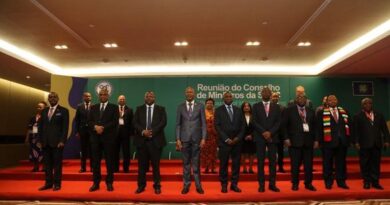Zambia Unveils K33.6B Budget Boost to Tackle Fiscal Strain
The Government of Zambia has tabled a supplementary budget worth ZMW 33.6 billion for 2025, aimed at stabilizing the country’s economy by addressing critical fiscal pressures and enhancing key social and economic programs.
The budget, presented by Finance and National Planning Minister Hon. Dr. Situmbeko Musokotwane, MP, comes at a time when Zambia is grappling with rising fuel arrears, increased debt servicing needs, and the growing demand for support in the agriculture and social sectors.
According to the Ministry of Finance, this financial boost is intended to reinforce macroeconomic stability and sustain development momentum under the 8th National Development Plan (8NDP). The budget prioritizes sectors crucial to national resilience and long-term growth:
- ZMW 11.0 billion has been allocated to clear fuel arrears, helping stabilize energy supply across the country.
- ZMW 8.5 billion is earmarked for debt servicing to meet Zambia’s post-debt restructuring obligations.
- ZMW 6.0 billion will support the 2025/26 Farmer Input Support Programme (FISP) to strengthen food security.
- ZMW 1.9 billion goes toward social protection, with a focus on social cash transfers and girl-child education.
- ZMW 1.8 billion is directed to education and infrastructure, especially skills development programs.
To finance the supplementary budget, government has outlined a multi-channel approach:
- ZMW 11.0 billion from expenditure savings and internal reallocations.
- ZMW 14.8 billion raised through domestic borrowing.
- ZMW 4.9 billion from improved revenue performance.
- ZMW 2.7 billion from additional donor inflows.
- ZMW 144 million from unspent 2024 allocations.
In a statement accompanying the budget announcement, the Ministry reiterated its commitment to sound fiscal management, noting that the supplementary budget is a response to global and climate-related economic shocks. The move also reflects Zambia’s determination to balance fiscal discipline with developmental ambitions.
Experts say the budget will help cushion critical sectors, but emphasize the need for Zambia to reduce its reliance on domestic borrowing. Long-term strategies will include enhancing public finance frameworks, improving budget credibility, and prioritizing value-for-money spending.



